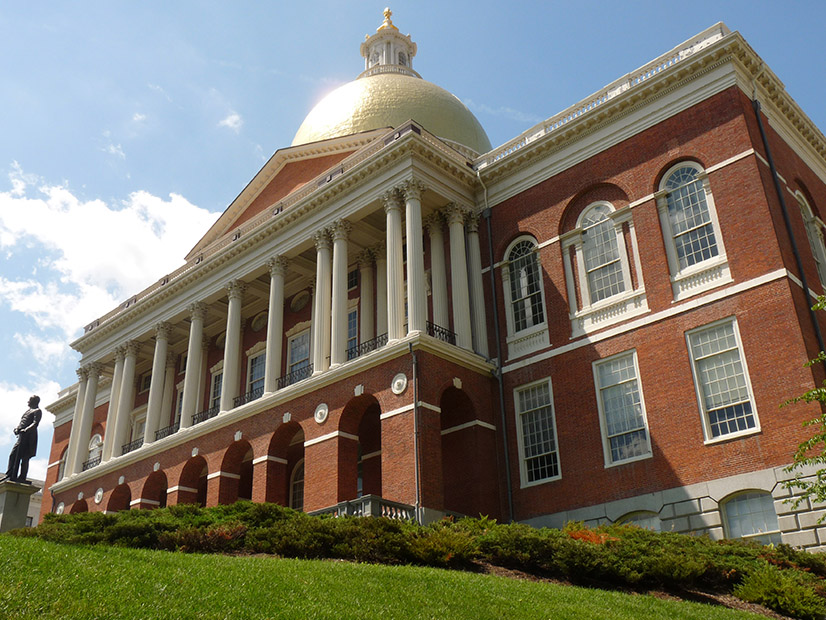
Members of the Massachusetts legislature questioned program administrators of Mass Save during a hearing on Wednesday asking why the utility group has fallen far behind state targets for electrification.
“There is a lot of feet dragging, even on the administration goals,” Sen. Marc Pacheco (D) said.
While Mass Save is supposed to transition 100,000 homes to electric heat each year, The Boston Globe reported that the group transitioned only 461 homes last year.
That number is “woefully low,” and “under the control of the electric and gas utilities,” Pacheco said.
Mass Save is a collaborative of Berkshire Gas, Blackstone Gas Company, Cape Light Compact, Columbia Gas of Massachusetts, Eversource Energy (NYSE: ES), Liberty Utilities, National Grid (NYSE: NGG) and Unitil (NYSE: UTL).
The Joint Committee on Telecommunications, Utilities and Energy held the hearing for several bills that the committee is considering, including An Act Instituting a Governance Structure for Mass Save (S.2132).
“From a legislative view, there is no one focused on responsibility” of the role of Mass Save in electrification, reducing greenhouse gas (GHG) emissions and engaging environmental justice communities in participating in its low-cost energy transition programs, Sen. Michael Barrett (D) said during the hearing.
As proposed, the bill would create a Mass Save board of directors that would include at least two experts in the economics of GHG reductions and three residents of state-designated environmental justice communities.
The bill, filed by Barrett earlier this year, is an attempt to hold Mass Save accountable in its new role under the state Climate Act, which is to prioritize GHG emissions reductions and assist in reaching the reduction sublimits imposed on sectors such as buildings, and natural gas specifically, the state senator said.
Mass Save currently operates without a CEO or a board of directors. The Massachusetts Energy Efficiency Advisory Council (EEAC), which includes state, utility and private sector representatives, is responsible for overseeing Mass Save’s work and energy efficiency in the state.
Chris Porter, a nonvoting member of the EEAC representing National Grid, testified Wednesday that the advisory council is aware of the reporting done by the Globe and said it is inaccurate because it does not reflect the number of houses that were partially transitioned from natural gas to heat pumps. Complete transitions, Porter said, involve removing the ability to supply natural gas to the home.
The partial transitions “should not be interpreted as a lack of support” for the state’s climate goals, Porter testified, as Mass Save has “partially” transitioned about 10,000 homes, meeting goals outlined in the current three-year plan for the program.
A draft for the next three-year plan for Mass Save allocates $894 million to electrification for 2022 to 2024, including funding for high-efficiency electric heat pumps, Porter said.
However, Barrett said the current three-year plan Mass Save is operating under took effect the same year the Massachusetts Decarbonization Roadmap development process kicked off, which should have inspired Mass Save to act sooner than it did.
Changes to Mass Save Under New Bill
The proposed Mass Save board would be responsible for tracking and evaluating the program’s role in instituting emission reduction targets under the leadership of an executive director appointed by the board that is not associated with a utility.
According to the bill, the executive director would prepare the annual budget for Mass Save and oversee its coordination with the Department of Public Utilities. The director would also file an annual report to the Secretary of Energy and Environmental Affairs and the legislative Joint Committee on Telecommunications, Utilities and Energy, as well as the Senate and House Committees on Ways and Means.
The report would focus on the cost-effectiveness of the program and its contribution to state GHG reductions.
However, it will take Mass Save along with other programs to achieve the scale needed to decarbonize heating systems in 100,000 buildings each year, said Cammy Peterson, director of clean energy at the Metropolitan Area Planning Council in Boston and a member of the EEAC.
Mass Save “needs to do a much better job reaching people, and we will need to look beyond Mass Save to achieve the scale that we need,” she said.
“Can Mass Save be saved?” Barrett said during the hearing. “We will have to see.”
